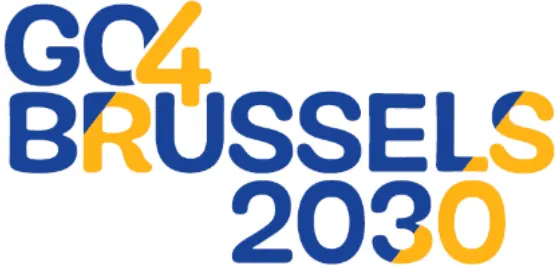Priority Development of Economically Strategic Areas
Urban planning and urban development are integral parts and tools of Brussels' societal construction. To support the economic policies of the Brussels government in the coming years, we will prioritise the development of certain strategic areas (Objective 1.6_Region).
The Brussels region is making significant efforts to continue making substantial public investments within its territory, necessary for the development of Brussels. These investments are pivotal in supporting Brussels as an economic engine for the country.
This objective relates to the territorial development of areas that provide space for economic production activities, either exclusively or combined with various functions. It also includes major regional economic (sectoral) policy initiatives, which may be related to other goals of the 2030 Strategy.
Who are the key contributors?
Consulted Priority
Leading Minister(s): The Minister-President, responsible for Territorial Development and Urban Renewal Associated Minister(s):
- Secretary of State for Economic Transition
- Secretary of State for Urban Planning
- Secretary of State for Housing
- Minister of the Environment
- Minister of Mobility
- Minister of Finance and Budget Partners: Brupartners, Perspective.brussels, citydev.brussels, URBAN, LB, BM, MSI, BPB, BGHM, Housing Fund, Port of Brussels, private sector (Mediapark project) Steering Committee: Brupartners, Perspective, URBAN, MSI (permanent), LB, BM, housing operators (depending on the discussed projects)
1. Supporting areas with economic production activities in their development
The government will safeguard and support production activities by maintaining the current industrial and port areas. The future of the Schaarbeek-Vorming site is of central importance in this regard (see the dedicated policy initiative below).
Furthermore, blending functions, including delineating enterprise zones in an urban setting (OGSO), also offers opportunities to integrate production activities into the urban fabric effectively. It is necessary to conduct further research into the regulations concerning mixed areas to align them as closely as possible with the needs of Brussels' production activities based on an assessment of the initial results. This will enable the development of balanced projects that combine commerce, production, and residential components in certain strategic areas, including South Station, Josaphat, West Station and Delhaizesite, Heyvaert, Slaughterhouses, Delta, Heizel, North Territory, and Maximilian (Masui), Defense, etc.
Leading authority: Minister of Territorial Development
2. Developing the Media Park pool (Reyers site)
The Mediapark.brussels project aims to develop a new district on the Reyers site. The goal is to promote the rise of the audiovisual sector, media, and the creative industry in Brussels and strengthen Brussels' international positioning in these sectors, which are undergoing unprecedented transformations and growth. In addition to the 4,000 jobs created during construction, the future district is expected to generate around 3,200 jobs.
The planned media house, Frame, will be a distinctive building in this new district, consolidating the region's intention to house a creative ecosystem that includes the regional TV station BX1, the IHECS Academy, screen.brussels, an innovation and co-working space, and more in a single building.
A territorial marketing strategy will be developed to promote the future media district in collaboration with players in well-established sectors around VRT and RTBF's future headquarters.
Leading authority: Minister of Territorial Development
3. Sustaining and developing activities in the canal zone
Preserving economic activity in the city and better integrating it into the urban environment are part of the goals of the Canal Plan.
The government will work to preserve industrial, logistics, and construction activities, strongly emphasising the waterway. Developing other activities in the mixed area is also a goal, particularly related to cultural, recreational, and event-related activities around the Kanal museum.
Leading authority: Minister of Territorial Development
4. Developing a logistics hub on the Schaarbeek-Vorming site
In consultation with the relevant public owners, the government will explore acquiring land management for the site. The site offers possibilities for industrial and logistics activities requiring connectivity to the railway, waterway, and road network (multimodal logistics platform).
Leading authority: Minister of Territorial Development
5. Developing a knowledge economy hub on the Kazernes site
The Usquare project, carried out in close collaboration with ULB and VUB, aims to transform this area into a leading university centre in Europe, where universities will establish a pioneering project in research, knowledge dissemination, international exchange, entrepreneurship, and innovation. There is also a plan for a sustainable food market on the site.
Leading authority: Minister of Territorial Development
